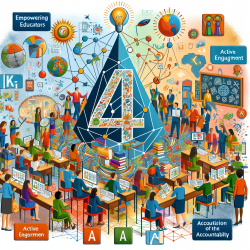As a practitioner in the field of special education and therapy, staying updated with the latest research and implementing its findings can significantly improve your practice. The Nova Scotia Conference on the Early Identification of Hearing Loss, held in September 1974, brought together experts from around the world to discuss the most effective methods for early hearing loss detection. This blog will highlight key outcomes from the conference and provide actionable steps for practitioners to enhance their skills.
Key Outcomes from the Nova Scotia Conference
The conference emphasized the importance of early identification of hearing loss, particularly in newborns and infants. Here are some of the key outcomes and recommendations:
- High Risk Register: A universal implementation of a High Risk Register for hearing loss was recommended. This register should be based on specific criteria, such as family history of hearing impairment, low birth weight, and high bilirubin levels.
- Behavioral Screening Tests: The use of behavioral screening tests as a supplement to the High Risk Register was encouraged. These tests should be carefully designed to control variables such as stimuli, response patterns, and environmental factors.
- Regular Follow-up: Continuous follow-up and regular hearing evaluations were stressed, especially for children identified as high-risk. This ensures early detection and timely intervention.
- Training and Education: Specialized training for practitioners in the recommended procedures was highlighted as essential. Interdisciplinary training courses should be offered by responsible international groups.
- Continued Research: The conference underscored the need for ongoing research into the causes, prevention, and early detection of hearing loss. Areas of focus include genetic studies, automated hearing testing units, and the relationship between prenatal environment and hearing loss.
Implementing the Recommendations
As a practitioner, you can take several steps to implement these recommendations and improve your skills:
- Stay Informed: Regularly read research articles and attend conferences to stay updated with the latest findings and best practices in early hearing loss detection.
- Adopt Screening Protocols: Implement the High Risk Register and behavioral screening tests in your practice. Ensure that you follow the recommended criteria and procedures for accurate results.
- Regular Follow-ups: Schedule regular hearing evaluations for high-risk children and ensure timely follow-ups. Early intervention can significantly improve outcomes for children with hearing loss.
- Seek Training: Participate in specialized training programs and interdisciplinary courses to enhance your skills in hearing loss detection and intervention.
- Engage in Research: Contribute to ongoing research by participating in studies and sharing your findings. Collaboration with other professionals can lead to improved techniques and better outcomes.
Encouraging Further Research
Continued research is vital for advancing our understanding of hearing loss and improving early detection methods. Practitioners are encouraged to engage in research and collaborate with experts in the field. By doing so, you can contribute to the development of more effective screening techniques and interventions.
To read the original research paper, please follow this link: Nova Scotia Conference on the Early Identification of Hearing Loss: A Review










